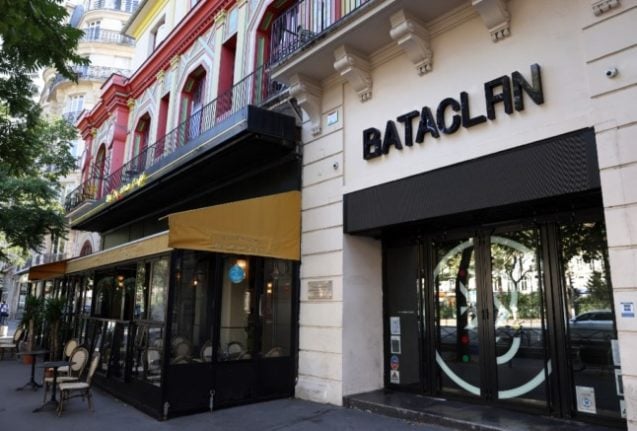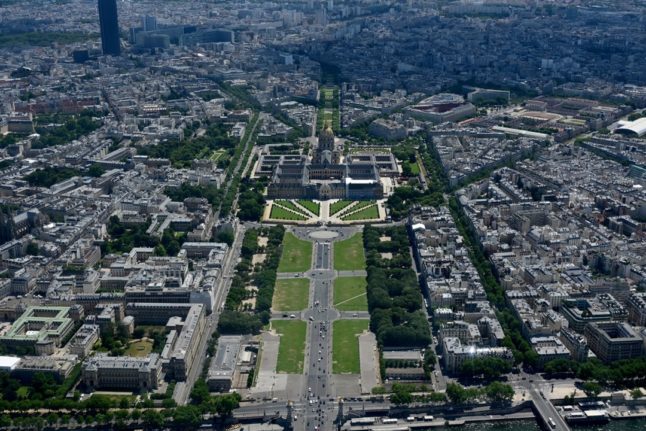The suicide bombing and gun assault by three teams of jihadists, later claimed by the Islamic State group, was France’s worst post-war atrocity.
A purpose-built facility at the historic court of justice on the Ile de la Cite in central Paris will host the trial, with 14 of the 20 defendants present, including the only surviving attacker, Salah Abdeslam.
“Everyone has their own expectations, but we know that this is an important milestone for our future lives,” said Arthur Denouveaux, a survivor of the Bataclan music venue attack and president of the Life for Paris victims’ association.
The trial over the traumatic jihadist killings, which were planned from Syria, is on a scale unmatched in recent times.
It will last nine months until late May 2022, with 145 days for hearings involving about 330 lawyers, 300 victims and former president Francois Hollande who will testify in November.
The case file runs to a million pages in 542 volumes, measuring 53 metres across.
Security alert
Surviving gunman Abdeslam, a Belgium-born French-Moroccan, fled the scene of the carnage after abandoning his suicide belt, which investigators found to be defective.
Abdeslam, now 31, was later captured in Brussels, hiding in a building close to his family home, after four months on the run.
He has resolutely refused to cooperate with the French investigation and remained largely silent throughout a separate trial in Belgium in 2018 that saw him declare only that he put his “trust in Allah” and that the court was biased.
A major question is whether he will speak at his scheduled testimony in mid-January 2022.
Another focus of the trial will be on how the squad of killers managed to come undetected into France, allegedly using the flow of migrants from Islamic State-controlled regions of Syria as cover.
Fourteen of the accused — who face a range of charges from providing logistical support, to planning and weapons offences — are expected to be present in court.
Six more suspects are being tried in absentia. Five of them are presumed dead, mainly in air strikes in Syria, including French jihadist brothers Fabien and Jean-Michel Clain.
The alleged coordinator, Belgian national Abdelhamid Abaaoud, was killed by French police northeast of Paris five days after the attacks.
Crossed from Syria
The horror was unleashed late on the night of Friday, November 13th when jihadists set off suicide belts outside the Stade de France stadium where President Hollande was in the crowd watching France play Germany at football.
A single person was killed there, 63-year-old Portuguese driver Manuel Colaco Dias.
A group of Islamist gunmen, including Abdeslam’s brother Brahim, then indiscriminately opened fire from a car on half a dozen restaurants in the trendy 10th and 11th districts of the capital which were packed with people winding down on the balmy autumn evening.
The massacre culminated at the Bataclan music venue where Californian group Eagles of Death Metal were performing to a packed house.
Three jihadists stormed in as the band was playing the number “Kiss the Devil”. A total of 90 people lost their lives there.
Hollande, facing another terror crisis just 10 months after gunmen attacked the Charlie Hebdo magazine in Paris, ordered borders closed and declared a state of emergency, a first since the Algerian War more than half a century earlier.
‘Step forwards’
The trial is also expected to lay bare the enduring psychological wounds of survivors, the 350 who were injured and families who lost loved ones, who will give five weeks of testimony starting on September 28th.
“I have to attend. I will surely suffer but it is a step forwards,” said Cristina Garrido, a 60-year-old Spaniard who lost her son Juan Alberto at the Bataclan. “What I want is for (the defendants) to hear the pain they left us with,” she told AFP in Madrid.
Abdeslam’s defence, led by lawyer Olivia Ronen, 31, have said that while the trial will be filled with emotions, the “judiciary must keep its distance if it does not want to lose sight of the principles that underpin our state of law”.
Under current scheduling, the verdict is due to be read out on May 24th and 25th, 2022.
The only comparable precedent for the trial is the one for the January 2015 attacks against the Charlie Hebdo satirical weekly and a Jewish supermarket, which opened in September 2020.
Three attacks carried out by “lone wolf” young radical Islamists, including the October 16th beheading of teacher Samuel Paty, shook France as that trial was ongoing.



 Please whitelist us to continue reading.
Please whitelist us to continue reading.
Member comments